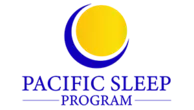What is a Sleepiness Assessment?
posted: May 26, 2015.
 A restful night's sleep - isn't it great? You wake feeling refreshed, relaxed and ready to tackle the day.
A restful night's sleep - isn't it great? You wake feeling refreshed, relaxed and ready to tackle the day.
But for people who have narcolepsy, a neurological condition characterized by abnormal bouts of daytime sleepiness, sleeping at night doesn't help with functioning during the day. Individuals with narcolepsy simply zone out or nap unexpectedly - during meal time or at the office.
Persons with narcolepsy may also exhibit cataplexy. This condition is characterized by bouts of extreme weakness in the muscles after a strong emotional reaction. People can be fully awake but unable to use their arms or legs. In addition, narcoleptics often:
- wake up frequently at night
- have very vivid and disturbing dreams
- experience temporary paralysis right before awakening
- sleep restlessly, moving arms and legs in a jerky manner
Many People Suffer From Narcolepsy and Other Sleep Disorders
The National Institute of Neurological Disorders and Stroke states that over 40 million individuals in the United States suffer from sleep disorders, with narcolepsy and sleep apnea the 2 that many people have heard of.
Narcolepsy can lead to other issues, such as depression and mood swings and the inability to perform everyday tasks. However, physicians and other sleep experts, such as those at the Pacific Sleep Program, can get to the root of these problems and help people deal with them.
Sleepiness Assessment at the Pacific Sleep Program in Astoria, Oregon
At the Pacific Sleep Program, Gerald B. Rich MD DABSM, Radhika S. Breaden MD MPH DABMS, Gregory Clark MD PhD DABSM and Brianna Hansen PA-C are trained in the latest diagnostic techniques and treatments for sleep disorders. Often a simple quiz on a person's sleep experiences can determine if testing for narcolepsy or other sleep issues is warranted.
One innovative test they offer is the Multiple Sleep Latency Test, or MSLT. Performed at the Pacific Sleep Program, the test takes an entire day and results are interpreted by the physicians on staff.
Individuals undergoing the MSLT actually sleep in a quiet, darkened room. Using sensors comfortably attached to the patient, the technician collects data regarding how many times the person falls asleep or naps during the day. How deeply the person sleeps and how long it takes to fall asleep are carefully noted during this daytime sleep study.
Treatment of Narcolepsy
While daytime sleepiness cannot be cured, it can be treated and controlled to optimize daily functioning. Sometimes, doctors choose to use antidepressants and common sense therapies such as:
- Setting a regular time to go to sleep and to wake up
- Exercising each day
- Engaging in something relaxing before going to bed (reading, listening to soft music)
- Avoiding caffeine and alcohol, especially during the evening
- Sleeping until at least dawn
Call to learn more about sleepiness assessment.
If you or your physician suspect you have narcolepsy or another sleep disorder, don't prolong your discomfort. Contact Doctors Rich, Breaden and Clark today to discuss your symptoms and your options. In Astoria, call (503) 325-3126 or in Portland, (503) 228-4414.
